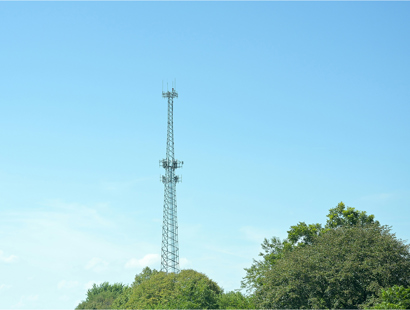
The Electronic Communications Code: key provisions and implications for landowners
Partner Ed Cracknell and associate Thomas Wild explore the key provisions of the Electronic Communications Code (ECC) and what they mean for landowners, businesses and charities.
The ECC plays a central role in how telecommunications operators gain or renew rights to use land for their networks. It’s a key piece of legislation in the UK and it is designed to support the expansion of telecoms infrastructure across the UK. However, for landowners and businesses hosting telecoms equipment it can cause a few challenges.
What is the ECC?
The ECC forms part of The Communications Act 2003. The Act went through significant changes and updates in 2017. The updates arose as a result of a view that the country needed more reliable and stable connectivity across the UK. The ECC created a legal framework for agreements between telecoms operators and landowners in relation to, for example, installing/maintaining equipment, accessing land and valuing it.
Key provisions of the ECC
Code rights
The ECC grants telecoms operators certain rights, which are known as ‘Code rights’ For example, operators can:
- access private land and carry out tests to assess suitability for electronic communications equipment
- install and maintain their equipment
- access land to inspect, repair, or upgrade infrastructure
- assign agreements to and share equipment with other operators
Landowners should be aware that these rights can be imposed by the tribunal if the parties cannot reach an agreement for them to be conferred consensually. However, this is only if an operator has followed the specific requirements set out in the ECC. If you’re currently speaking with an operator or their agent in respect of any Code rights, we would recommend you seek legal advice before you enter into any agreements. This is to ensure that your position is protected and that the operator has complied with the requirements under the legal framework.
Valuation
One of the most significant changes to the Act is how rent is calculated. The valuation of a telecoms site is now based on the "no scheme" or “no network assumption” principle. The calculation of rent is often a complicated process. However, in simple terms, land is valued by excluding any value which is attributable to the intention of the operator to use that land as part of its network. To that end, it is assumed that the land is not a desirable location for an operator to install equipment.
Whilst this often means that rents are significantly lower under the new framework, we would always suggest speaking to a professional telecoms valuer before you enter a new agreement with an operator. Operators are required to pay a landowner’s reasonable costs in negotiating a new agreement, so landowners wouldn’t normally be burdened for taking advice.
Rights to upgrade and share equipment
The Code allows operators to upgrade and share equipment with other providers without needing the landowner’s consent and–importantly–without any right for the landowner to demand payment.
However, this is only in respect of agreements entered into after the introduction of the ECC. If you have an agreement with an operator which was entered into before the introduction of ECC (i.e. before 28 December 2017) this is not the case.
In this scenario, an operator is bound by the terms of the agreement which they entered into with the landowner albeit that the operator has the right to apply to the tribunal to modify the existing rights or to obtain new ones. It is therefore critical that landowners check with professionals what obligations have been placed on an operator in the event they try to do anything on the land/with their equipment.
Conclusion
The introduction of the ECC has dramatically shifted the landscape in telecoms. The legal framework was designed to boost connectivity across the UK and as a result it favours operators in most areas. That being said, landowners can still achieve fair outcomes if they take time to understand the technical intricacies of the ECC and consult with professionals. Landowners should also carefully monitor the day to day use of sites on their land, to ensure that operators are complying with the terms of their agreements. Our next article will cover the removal and relocation of apparatus, so do check back for further updates.
Ed Cracknell is a partner in the property litigation team specialising in all aspects of property dispute resolution. Thomas Wild is an associate, also in the team, advising on the full breadth of contentious property matters.
Get in touch
If you would like to speak with a member of the team you can contact our property litigation solicitors by email, by telephone on +44 (0)20 3826 7525 or complete our enquiry form.




